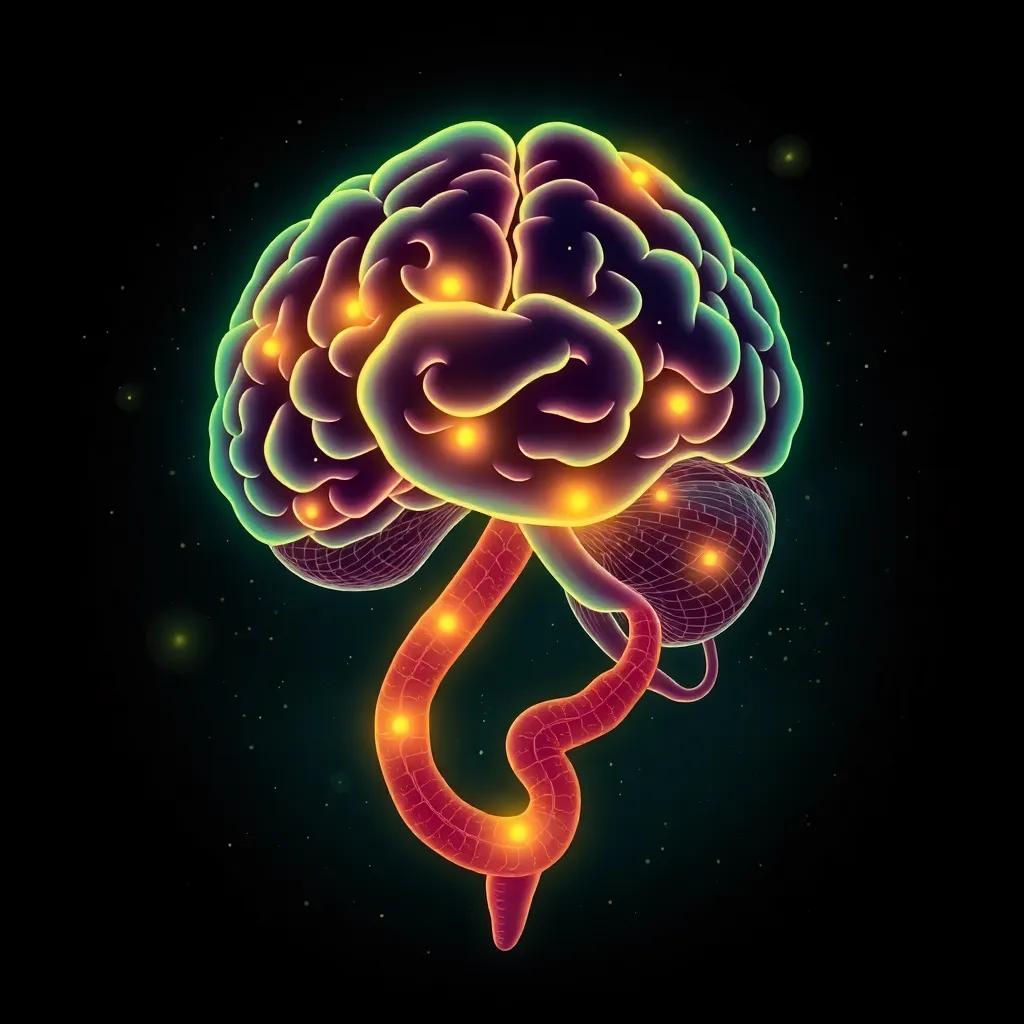Exploring the science behind the gut-brain axis and how gut bacteria imbalances can impact mental health, featuring expert insights and recent research findings.
Recent studies reveal a profound link between gut health and mental well-being, shedding light on how microbiome imbalances may contribute to anxiety and depression.
The Gut-Brain Axis: A Two-Way Communication System
The gut-brain axis is a complex bidirectional communication network linking the central nervous system (CNS) with the enteric nervous system (ENS) of the gastrointestinal tract. This connection involves neural, endocrine, and immune pathways, allowing the gut and brain to influence each other’s functions.
According to a 2023 study published in Nature, the gut microbiome produces neurotransmitters like serotonin, dopamine, and GABA, which play crucial roles in mood regulation.
Dr. Emeran Mayer, a gastroenterologist and author of The Mind-Gut Connection, explains: About 90% of serotonin, often called the ‘happy hormone,’ is produced in the gut.
How Gut Bacteria Affect Mental Health
Research from the Journal of Psychiatric Research (2022) demonstrates that individuals with depression often show reduced microbial diversity in their guts. Specific bacterial strains, like Bifidobacterium and Lactobacillus, appear to have antidepressant effects by reducing inflammation and producing mood-regulating compounds.
Dr. John Cryan, a neuroscientist at University College Cork, stated in a press release: Our animal studies show that transplanting gut bacteria from depressed humans to mice can transfer depressive-like behaviors, suggesting a causal role for the microbiome in mental health.
Practical Steps to Improve Gut Health
Probiotic-Rich Foods
Incorporating fermented foods like yogurt, kefir, sauerkraut, and kimchi can introduce beneficial bacteria to your gut. A 2021 study in Nutrients found that participants consuming probiotic foods daily showed significant reductions in anxiety symptoms.
Prebiotic Foods
Prebiotics, found in garlic, onions, bananas, and asparagus, feed beneficial gut bacteria. Nutritionist Dr. Megan Rossi recommends: Aim for at least 30 different plant-based foods weekly to support microbial diversity.
Lifestyle Factors
Stress management, regular exercise, and adequate sleep all positively impact gut health. The American Psychological Association’s 2022 report highlighted that chronic stress can alter gut bacteria composition within days.
Future Directions in Research
Exciting developments include psychobiotics – targeted probiotic formulations for mental health. The National Institutes of Health recently announced $20 million in funding for gut-brain axis research, recognizing its potential to revolutionize mental health treatment.




